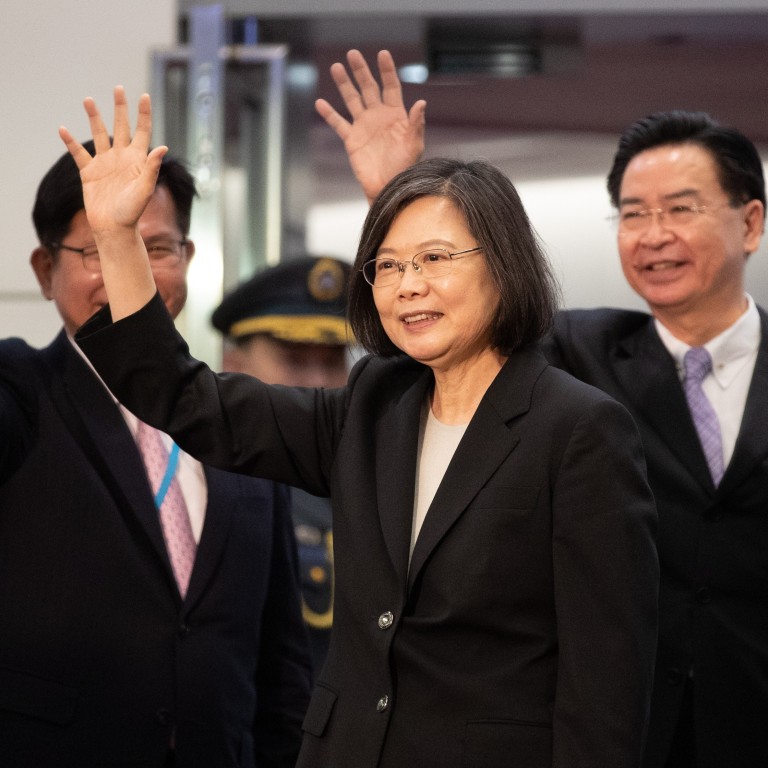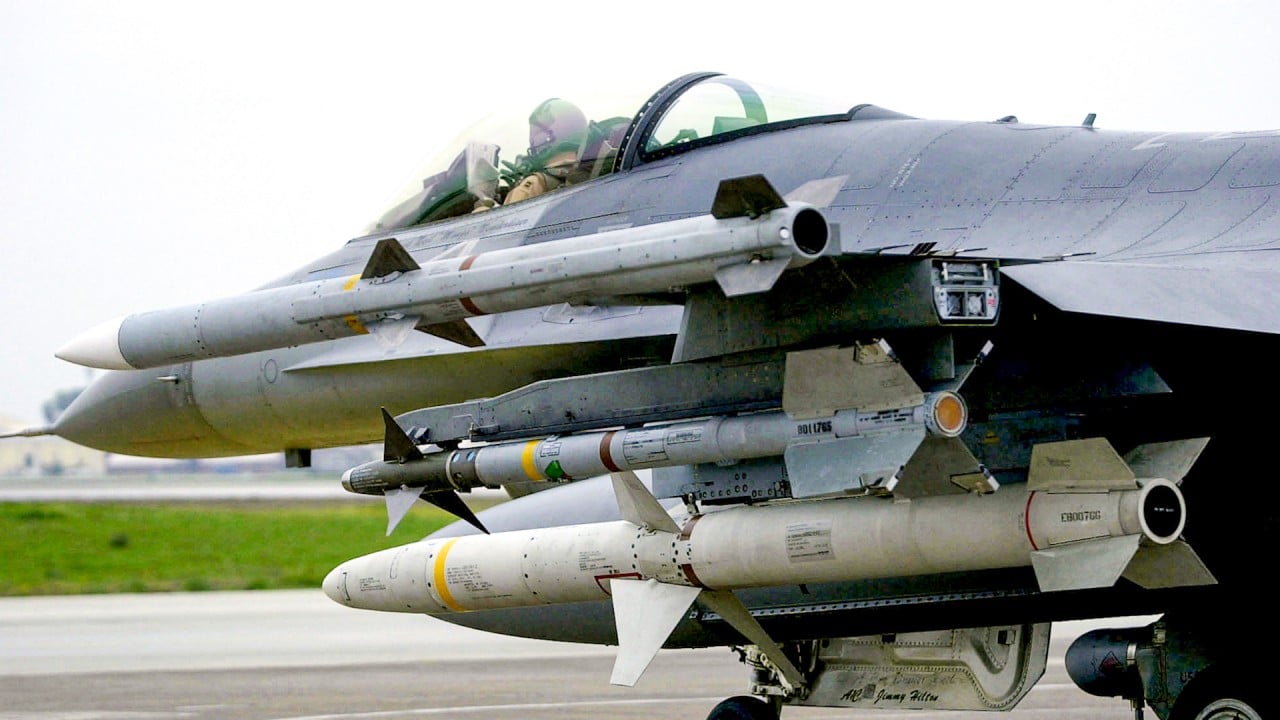
Beijing will ‘resolutely hit back’ if Taiwanese President Tsai Ing-wen meets US House Speaker Kevin McCarthy
- The Taiwanese leader’s 10-day visit to Central America will also include two US stopovers
- China calls US transits a ‘provocation’, says Tsai should ‘behave herself’
Beijing has warned that it will “resolutely hit back” if a planned meeting between Taiwanese President Tsai Ing-wen and US House Speaker Kevin McCarthy goes ahead during her transit through the United States.
Zhu Fenglian, a spokeswoman for the mainland State Council’s Taiwan Affairs Office, issued the warning on Wednesday, hours before Tsai left for a 10-day tour to visit the island’s Central American allies of Guatemala and Belize.
Taiwan leader Tsai and US Speaker McCarthy said to meet soon in California
Tsai was expected to stay two nights in New York before continuing to Guatemala and then Belize. On her way back to Taiwan, she is expected to stay in Los Angeles for two nights from April 4, according to the island’s Presidential Office.
While in New York, Tsai is expected to address an event hosted by the Hudson Institute on Thursday and will receive a “global leadership award” from the think tank, the Financial Times reported earlier, citing people familiar with the situation.
The report also said Tsai would meet McCarthy in his home state of California and give a speech at the Ronald Reagan Library in Simi Valley.
McCarthy confirmed on March 7 that he would meet Tsai in the US instead of in Taipei. He had previously indicated that he would visit Taiwan this year to offer his support for the island, prompting Beijing to warn of “grave consequences” if the trip went ahead.
On Wednesday, Zhu said the island’s Democratic Progressive Party authorities had been known to use various kinds of excuses and opportunities to seek independence.
“The so-called US transit by the leader of the Taiwanese authorities is essentially a provocation by relying on the United States to seek independence,” she said, adding that Tsai was attempting to use the trip to create the impression of “one China, one Taiwan,” or “two Chinas” – a move violating Beijing’s “one-China” principle.
Zhu said Tsai should “behave herself” during her transit by staying put at the airport or hotel instead of using pretexts to reach out to American officials and members of Congress.
She also urged US officials to strictly observe the one-China policy by refraining from any official contact with Tsai.
Czech president-elect risks Beijing’s anger with Taiwan phone call
Speaking before her departure for New York, Tsai said the island would not bow to authoritarianism and would continue efforts to increase its international presence.
“The determination of Taiwan to reach out to the world will only be stronger … and no external pressure can stop our determination to reach out to the world,” she said.
Tsai said with support from democratic and like-minded countries, Taiwan would be able to stand firmly on its own feet.
In Washington, White House national security spokesman John Kirby said Tsai’s transit was not unusual, adding that this would be her seventh US transit.
He also said there was no plan for the White House to send officials to meet Tsai while she is in the US.
Taiwan elections: DPP’s Tsai resigns as party chief after KMT wins big
“Tsai’s visit reinforces the relationship with the US and fortifies her domestic position that our bilateral relationship is essential to Taiwan’s health and well-being,” he said.
Wang Kung-yi, head of the Taiwan International Strategic Study Society, a Taipei think tank, said Beijing was angry because it was opposed to any official contact between the US and Taiwan.
“Tsai is reported to not only make public speeches in the US, but also to meet McCarthy. The meeting is considered a breakthrough for Taiwan in its transit diplomacy if it does occur,” he said.
Chinese foreign ministry spokeswoman Mao Ning stressed the mainland had many times made “solemn representations” to the US against Tsai’s “sneaky US transit,” and any form of contact between the US and the island.
She also warned the US not to collude with Taiwanese separatist forces and insisted that Beijing was not over-reacting to the situation.
Most countries, including the United States, do not recognise Taiwan as an independent state. Washington, which supplies arms to the island, however, opposes any attempt to take the island by force.


